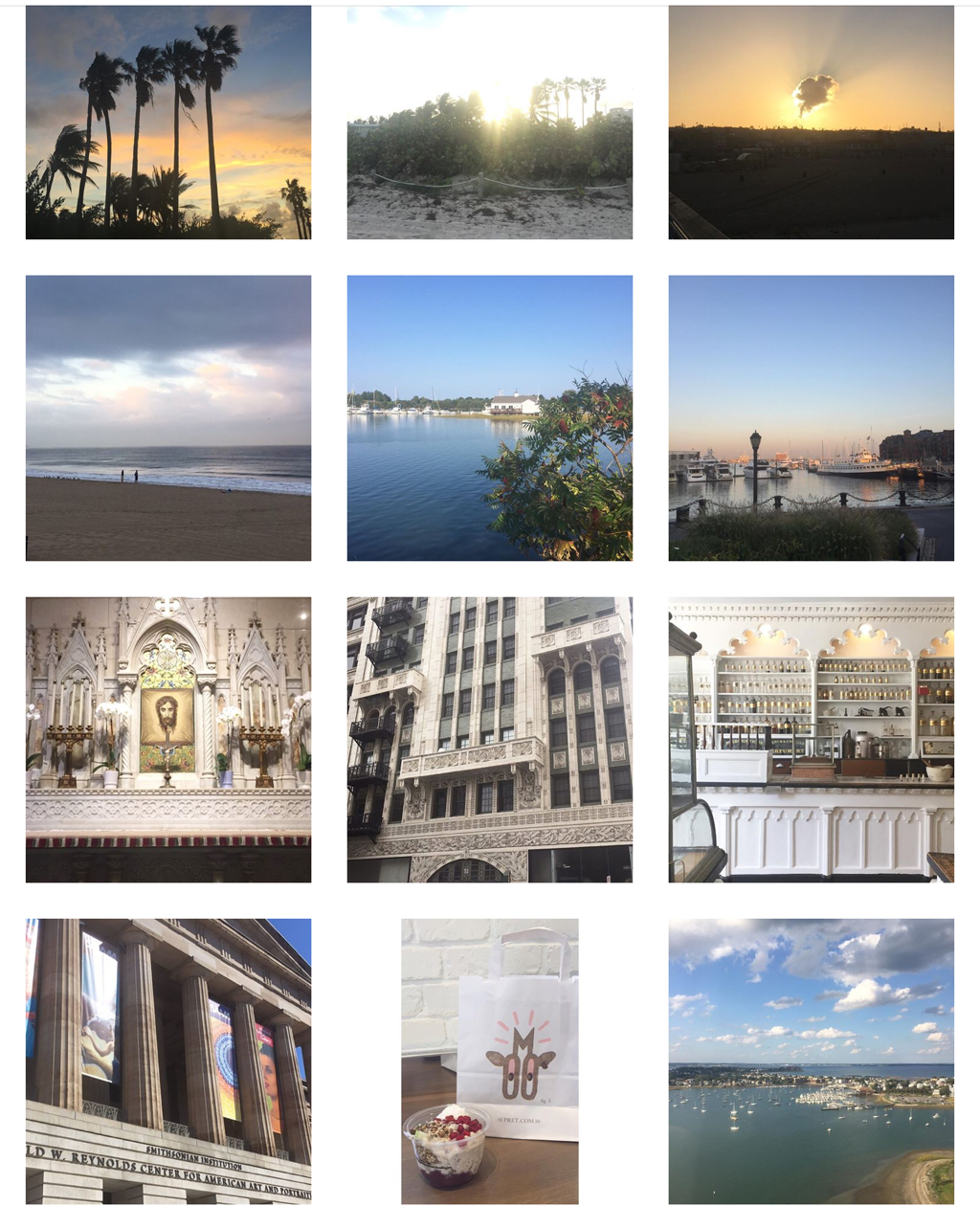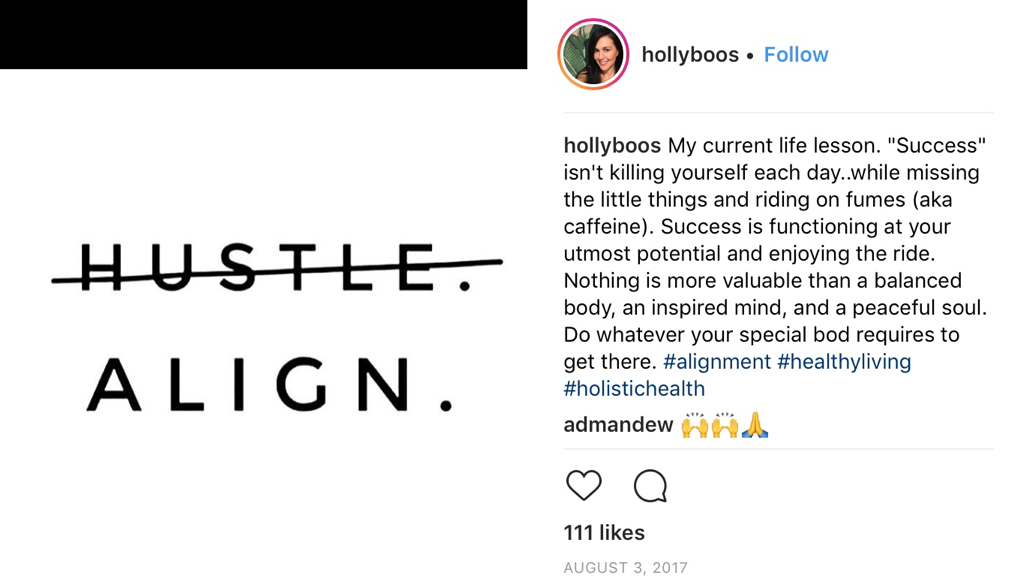|
So, I have to go ahead out "out" myself. Particularly because of the last few blog posts. Not only were they posted in MAY, they were also on the topic of self-care. While that has continued to be a running theme in my life, I have to confess that I haven't earned many gold stars in this area as of late. I could definitely get gold stars for worrying about not getting enough self-care, but actual implementation: nope.
When I moved from Oklahoma to LA, I felt like I was in a storm/ time warp/ twilight zone/ hell. I was very consciousness that this time of my life would bring inevitable stress, but trying to alleviate it sort of felt like trying to meditate and get in enough exercise while there was literally and figuratively a flood happening. Everything that I knew well-- every routine, familiar face, my grocery store, squeezing my nieces (my self-regulation vices) all of it sort of got swept away. This is by no means me feeling sorry for myself because this was entirely voluntary/ self-inflicted because it was my choice to move, but the multitude of change that I had just brought on was (and still is) extremely uncomfortable. Before I go into some of the things that have gotten me through this in one piece, I suppose I could give a little insight to the subtext as to why this was/is "uncomfortable". (Please note: I am speaking from my personal point of view and while I am absolutely sure non-HSPs probably feel a very similar way being put in these positions, I am just giving a little insight to my experience in my "special" body.) Being a highly sensitive person, my nervous system is extremely receptive to sensory/ nuance/ energy...meaning, my fight or flight mode/ sympathetic nervous system is a little trigger happy. Change in my environment means a lot of "potential danger". The more you become acclimated to a person, space, etc., you are able to process those "features", deem them safe (or not), and you are then able to come down a little and not feel so uptight and/ or irritable. Which, again, is how most humans function, but, for HSP’s, it’s all intensified. Within the first few months of being back in LA, I acquired a fast-paced job, moved into a new apartment...after three intense weeks of searching, had someone I've known for a long time show their true (murky) colors, and found myself in a very tight schedule with very little free time. All the while, I am trying to give myself grace as I try to process, self-regulate, and come back into my body more than not. (..And keep a social life, try to maybe date, and not starve my little elderly pup, Eloise, of deserving TLC.) I felt led to accept an exciting job where I travel half of the month and while I am unclear if this is my premature death sentence or a potentially valuable challenge, it gave me the idea that I can share my journey to staying mentally sound, physically fit, and well-- all while traveling for work (and play)! I will go more into this exiting content later, but today I am going to chat about some of the things I have done that have been extremely instrumental to making a healthy/ stable transition. Yes, I do feel that if I didn't implement these steps, the stress would have been significantly more brutal. First, some obvious “symptoms” and red flags to look out for that might indicate that you may be living at a pace/ mind space that could be detrimental your spiritual life, personal life, and literal lifespan: when you’re feeling a little out of body, unfulfilled, tense, you have a hard time connecting, OR you find yourself looking back on previous days and can't quite picture the details and the days seem vague. Any of these sound familiar? Here are some significantly useful habits you can implement to make you feel a little more sound, secure, and present. 1. Find Time to Breathe. Like, really breathe. Those great diaphragmatic breaths where you breathe in and your stomach expands and when you breathe out, it goes back down. (Reading this description could sound elementary and instinctual, but until I studied "basic breathing" in school, I didn't realize that my body didn't do those things until I started practicing. I would force my stomach to push out, even though, air wasn't actually filling my lungs and continue until I caught a full, natural breath. To this day, I still have to frequently check in with myself and make sure I'm doing that.) REAL breathing is a great way to signal to your body that you're not in danger. You could be safe on your couch watching Netflix, but if you're taking shallow breaths, chances are, your body is still in fight or flight mode. When you're functioning with your sympathetic nervous system, or "fight or flight", you're in survival mode. Your body doesn't care about secreting regulated hormones, repairing damaged cells, digesting, etc. It's purely functioning to survive, releasing cortisol. This is why when you’re stressed, you’re maybe a snacker or don’t have an appetite at all-- due to your bodies' inability to release the proper amounts of your "full" and "hungry" hormones, leptin and ghrelin. Another popular repercussion is having overly active bowels or your elimination is slowed down (or off altogether). One of my favorites is looking haggard— which is how your friends clairvoyantly ask you if everything is okay because they can see it on your face— your cell turnover rate has lulled. So, this cliche tip to breathe is actually THAT important because you want to trigger your parasympathetic nervous system, “rest and digest” mode, so your body functions like it's supposed to.. 2. Find a Not-So-Guilty Pleasure...or two. One of my very favorite scenarios is to cook while listening to uplifting movies or music, accompanied by chilled wine glass of KeVita (fermented coconut water). This originally became a habit because I wanted to "come down" after work by drinking something without alcohol when I quit drinking for a year. I now prefer this ritual because it contributes to my health and is still an extremely effective way to relax. So, I'm not saying go grab yourself a KeVita, but take inventory of the things that really give back to your body and allow you to feel at ease. Whether that's evening strolls, drawing, crossword puzzles, ANYTHING--- so that if you find yourself out of your comfort zone, you're able to come down, without compromising your health. 3. Get Moving. I can't tell you how often I've blogged about or told clients this somewhat obvious, but under utilized little gem. You might hear it a lot because the stats are right-- working out is one of the most effective stress relievers, a great way to pump your endorphins, and press the reset button. When I travel or find myself in a state of stress, I run. I bring my running shoes because I know the consistency of working out is so healing for me. No matter where you're working out, if you're able to become centered, it will trigger that same state/ mindset, no matter where you are (literally and figuratively). 4. Implement Routine. To some, this could seem very boring. I'm not saying shut down your spontaneous side, but routine can be a great way to bring familiarity to an unfamiliar place or time in your life. While I love supporting local, independent shops, one of my best travel tips is: the second you touch down at the airport, map a Whole Foods. You can find one in most major cities, either near the airport or your hotel. Since most layouts are fairly similar, choosing a grocery like Whole Foods will actually end up saving you time— not to mention the obvious perks of having healthy snacks handy when you’re on the go. I know when most people think of Whole Foods, they don’t exactly think “budgeting”, but this little routine will also end up saving you money! Grabbing some quick $3 breakfasts (like superfood oatmeal cups by Vilgilant Eats and Purely Elizabeth), $1 bottles of spring water, transportable fruits like apples, pears, plums— not only allows you to stay on a healthy path, it also reduces the temptation of grabbing a $4 acidic SmartWater from your mini fridge or a processed snack from a vending machine or convenient store. I also highly suggest grabbing a green drink, low in sugar (4ish grams a serving), to alkalize your system and help combat travel stress. During my move, I have loved discovering new places, but when I'm feeling a tad overwhelmed, you have no idea how comforting it is to walk into somewhere like a Sprouts-- anywhere I can go to avoid unnecessary stimuli. In order to master these tips, you must first challenge yourself to devote time to be still. Time to check-in and pay attention to what does and doesn't work for you: activities, foods, etc. By doing this, I was able to find the very things that bring me to a state of homeostasis. (And, also, things that lead me to the brink of spiraling.) This custom “wellness formula” is invaluable when you're entering a time of stress, change, upheaval. Take inventory of the things that help you self-regulate and feel whole and authentic... and do what it takes to make sure that you’re living on that level. It’s the most self-honoring thing you can do! Do you have any self-regulating routines?! Please share in the comments section below!
0 Comments
Your comment will be posted after it is approved.
Leave a Reply. |
Archives
May 2020
Categories
All
|
What Specialists Are Saying About IIN Health Coaches
What is a Health Coach?
All material and information presented by The Radiance Refinery is intended to be used for educational purposes only. The statements made about products, supplements, or treatments have not been evaluated by the Food and Drug Administration (FDA). The information presented on The Radiance Refinery is not intended to treat, cure, or prevent any condition or disease. Please consult with your own physician or health care practitioner before making changes to your diet, exercise routine, or lifestyle.
Privacy Policy Accessibility Cookies



 RSS Feed
RSS Feed